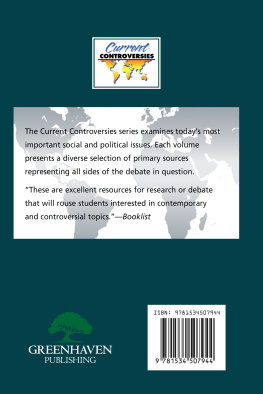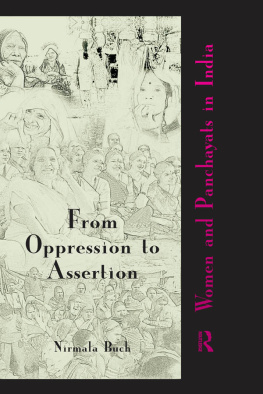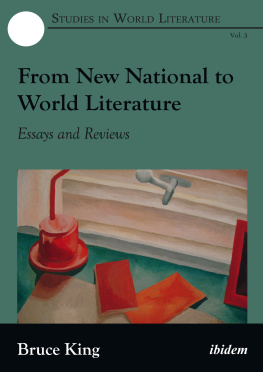
- Great Clarendon Street, Oxford OX2 6DP
- Oxford University Press is a department of the University of Oxford.
- It furthers the University's objective of excellence in research, scholarship,
- and education by publishing worldwide in
- OxfordNew York
- AucklandCape TownDar es SalaamHong KongKarachi
- Kuala LumpurMadridMelbourneMexico CityNairobi
- New DelhiShanghaiTaipeiToronto
- ArgentinaAustriaBrazilChileCzech RepublicFranceGreece
- GuatemalaHungaryItalyJapanPolandPortugalSingapore
- South KoreaSwitzerlandThailandTurkeyUkraineVietnam
- Oxford is a registered trade mark of Oxford University Press
- in the UK and in certain other countries
- Published in the United States
- by Oxford University Press Inc., New York
- the several contributors 2011
- The moral rights of the authors have been asserted
- Database right Oxford University Press (maker)
- All rights reserved. No part of this publication may be reproduced,
- stored in a retrieval system, or transmitted, in any form or by any means,
- without the prior permission in writing of Oxford University Press,
- or as expressly permitted by law, or under terms agreed with the appropriate
- reprographics rights organization. Enquiries concerning reproduction
- outside the scope of the above should be sent to the Rights Department,
- Oxford University Press, at the address above
- You must not circulate this book in any other binding or cover
- and you must impose this same condition on any acquirer
- British Library Cataloguing in Publication Data
- Data available
- Library of Congress Cataloging in Publication Data
- Library of Congress Control Number: 2010940325
- Typeset by SPI Publisher Services, Pondicherry, India
- Printed in Great Britain
- on acid-free paper by MPG Books Group, Bodmin and King's Lynn
Assertion:
New Philosophical Essays
Jessica Brown and Herman Cappelen
(p.vii) Contributors
JESSICA BROWN, University of St Andrews
HERMAN CAPPELEN, University of St Andrews and University of Oslo
SANFORD GOLDBERG, Northwestern University
PATRICK GREENOUGH, University of St Andrews
MAX KLBEL, University of Barcelona
JONATHAN L. KVANVIG, Baylor University
JENNIFER LACKEY, Northwestern University
JOHN MACFARLANE, University of California, Berkeley
ISHANI MAITRA, Rutgers University
PETER PAGIN, University of Stockholm
ROBERT STALNAKER, Massachusetts Institute of Technology
(p.viii)
Assertion: An Introduction and Overview
Jessica Brown
Herman Cappelen
Abstract and Keywords
This chapter starts by discussing the origins of this book, which began at a conference on assertion held at the Arch Philosophical Research Centre, St Andrews, Scotland in June 2007. The aim of this book (and the conference) was to bring together new work on assertion by leading epistemologists and philosophers of language. Although the topic of assertion is central to both these areas, work between them is insufficiently integrated. This book aims to force integration.
Keywords : assertion, epistemologists, philosophy of language to philosophy, integration
Introduction
This volume originated in a conference on assertion held at the Arch Philosophical Research Centre, St Andrews, Scotland in June 2007. The aim of the conference and of this resulting volume was to bring together new work on assertion by leading epistemologists and philosophers of language. Although the topic of assertion is central to both epistemology and the philosophy of language, work in these two areas is insufficiently integrated. One main aim of the volume is to foster increased interaction between epistemologists and philosophers of language working on assertion.
The primary focus of much work on assertion within the philosophy of language has been to provide an account of assertion understood as a certain type of speech act. A variety of potential accounts has been offered, including the ideas that assertion is individuated by certain norms, or by its effects (for instance, on the common ground of the conversation), or by its commitments, or by its causes, such as the mental state it expresses. A second related issue is how to understand the speech act of assertion if relativism about truth is correct. Some have used relativistic views to defend one or other account of assertion. Others have used the difficulty in providing an account of assertion within a relativistic framework as an argument against relativism.
Within epistemology, assertion is central to debates concerning testimony and the nature of knowledge. Epistemologists have been especially interested in the idea that assertion is governed by a norm that imposes epistemic requirements on appropriate assertion. A recent influential defense of this view is provided by Williamson, who argues that assertion is distinguished from other speech acts by being subject to the following unique constitutive ruleone must: assert p only if one knows that p (Williamson , to summarize the individual chapters in the collection.
Assertion in the Philosophy of Language
The notion of assertion has played an important role in the philosophy of language over the last 100 years. In what follows, we briefly survey some of the central debates involving assertion.
2.1 Assertion as an Illocutionary Speech Act: An Overview of Theories
In How to Do Things with Words (1975), Austin distinguished between locutionary and illocutionaryacts. The notion of a locutionary act is introduced as follows:
the utterance of certain noises, the utterances of certain words in a certain construction and the utterance of them with a certain meaning in the favourite philosophical sense of that word, i.e. with a certain sense and with a certain reference. The act of saying something in this full normal sense I call, i.e. dub, the performance of a locutionary act(Austin : 945)
This notionthat of saying something in its full normal senseis relatively clear. By comparison, the notion of an illocutionary act, under which assertion falls, is less clear. Austin introduces it by examples: he says that making a wish, giving an order, asking a question, and making an assertion are examples of illocutionary acts. It is important to note that, according to Austin, all illocutionary acts are











